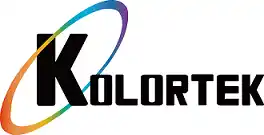Chameleon pigments are a unique and versatile material that has rapidly gained popularity in the automotive industry. These pigments change color depending on the angle of light, creating a mesmerizing effect that is both attention-grabbing and aesthetically pleasing. They have become a popular choice for custom car painters and automotive enthusiasts who want to create a one-of-a-kind finish for their vehicles. In this article, we will explore the dazzling world of chameleon pigments and how they are used in the automotive industry.
- What are Chameleon Pigments?
Chameleon pigments are color-shifting pigments that create an iridescent effect when exposed to light. They are made from a combination of titanium dioxide, iron oxide, and mica flakes. The mica flakes are coated with layers of metal oxides that refract light, creating a multi-dimensional color effect.
- How Do Chameleon Pigments Work?
Chameleon pigments work by reflecting and refracting light at different angles. When viewed from different angles, the pigment appears to be a different color, creating a shifting, iridescent effect. This effect is caused by the interference of light waves as they pass through the layers of metal oxides on the surface of the mica flakes.
- Benefits of Chameleon Pigments in Automotive Industry
a. Customization: Chameleon pigments allow automotive enthusiasts to create a custom finish for their vehicles. They can be blended with different base colors to create a range of effects, from subtle shifts to dramatic color changes.
b. Durability: Chameleon pigments are highly durable and resistant to fading, making them ideal for use in automotive finishes. They are also resistant to chemicals and weathering, ensuring that the finish remains intact even in harsh conditions.
c. Unique Look: Chameleon pigments create a unique, eye-catching look that sets vehicles apart from others on the road. The iridescent effect is attention-grabbing and mesmerizing, making it a popular choice for car shows and other automotive events.
d. Branding: Chameleon pigments can also be used to create custom branding for vehicles. They can be blended with colors that match a company’s logo or image, creating a cohesive and recognizable look for the vehicle.
- Applications of Chameleon Pigments in Automotive Industry
a. Custom Paint Jobs: Chameleon pigments are commonly used in custom paint jobs for cars, motorcycles, and other vehicles. They can be blended with different base colors to create a range of effects, from subtle shifts to dramatic color changes.
b. Vinyl Wraps: Chameleon pigments can also be used in vinyl wraps for vehicles. The pigment is mixed with the vinyl material, creating a color-shifting effect that adds an extra layer of visual interest to the design.
c. Powder Coating: Chameleon pigments can be applied to powder-coated parts to create a unique finish. This application method is common for wheels, engine parts, and other components.
d. Custom Graphics: Chameleon pigments can be used to create custom graphics for vehicles. The pigment can be incorporated into the design, creating a shifting, multi-dimensional look that adds visual interest and depth to the graphics.
- Preparations and Techniques for Applying Chameleon Pigments
a. Proper Surface Preparation: Proper preparation of the surface is critical for achieving a high-quality finish with chameleon pigments. The surface must be thoroughly cleaned and sanded, ensuring that there are no contaminants or imperfections that could affect the finish.
b. Base Color Selection: The base color should be selected carefully, as it will influence the final appearance of the chameleon pigment. For best results, a dark base color is recommended to create a more vibrant and dramatic effect.
c. Mixing the Pigment: Chameleon pigments should be mixed carefully to ensure an even distribution of the pigment throughout the clear coat. The pigment should be mixed according to the manufacturer’s instructions and thoroughly stirred before application.
d. Spray Techniques: Chameleon pigments require special spray techniques for proper application. A base coat is applied first, followed by a clear coat with the chameleon pigment. The clear coat should be sprayed in thin, even layers, with ample drying time between coats.
Chameleon pigments are a fascinating material that has revolutionized the automotive industry. They create a mesmerizing, iridescent effect that sets vehicles apart from others on the road. The benefits of using chameleon pigments in automotive finishes include customization, durability, a unique look, and branding opportunities. The applications of chameleon pigments in the industry include custom paint jobs, vinyl wraps, powder coating, and custom graphics. Proper surface preparation, careful base color selection, pigment mixing, and spray techniques are critical for achieving a high-quality finish with chameleon pigments. Overall, chameleon pigments have transformed the automotive industry by providing a new avenue for creativity and visual interest.

